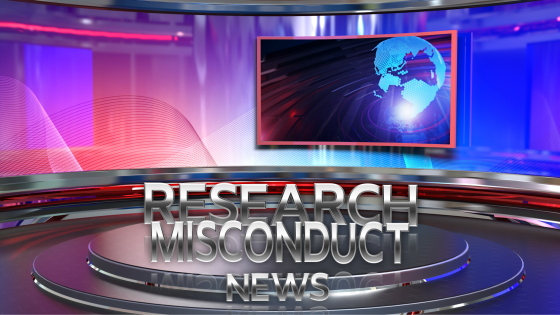| January | February | March | April | May | June |
| July | August | September | October | November | December |

Scientists’ suit against top academic publishers lays bare deep frustration over unpaid peer review
Researchers allege journal publishers violated federal antitrust law
Jonathan Wosen
March 10, 2025
West Coast Biotech & Life Sciences Reporter
In a stark sign of scientists’ escalating frustration with how academic journals operate, researchers are taking on six publishing behemoths in court, arguing that the system is exploitative and overly expensive, and that it relies on illegal and anticompetitive practices.
Four researchers have sued six of the world’s biggest publishers: Elsevier, John Wiley & Sons, Sage Publications, Springer Nature, Taylor & Francis, and Wolters Kluwer. The scientists allege that these publishers violated federal antitrust law by colluding not to pay researchers for peer reviewing manuscripts, preventing them from submitting papers to more than one journal at a time, and blocking authors from publicly discussing or sharing work once they’ve submitted it to a journal.

AI tools are spotting errors in research papers: inside a growing movement
Large language models are being used to check papers, but researchers warn they come with risks.
March 7, 2025
Nature
Elizabeth Gibney
Late last year, media outlets worldwide warned that black plastic cooking utensils contained worrying levels of cancer-linked flame retardants. The risk was found to be overhyped — a mathematical error in the underlying research suggested a key chemical exceeded the safe limit when in fact it was ten times lower than the limit. Keen-eyed researchers quickly showed that an artificial intelligence (AI) model could have spotted the error in seconds.
The incident has spurred two projects that use AI to find mistakes in the scientific literature. The Black Spatula Project is an open-source AI tool that has so far analysed around 500 papers for errors. The group, which has around eight active developers and hundreds of volunteer advisers, hasn’t made the errors public yet; instead, it is approaching the affected authors directly, says Joaquin Gulloso, an independent AI researcher based in Cartagena, Colombia, who helps to coordinate the project. “Already, it’s catching many errors,” says Gulloso. “It’s a huge list. It’s just crazy.”
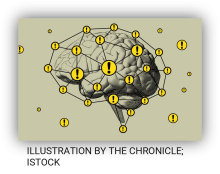
A Scandal in Alzheimer’s Research Shows How Science Can Go Astray
February 4, 2025
The Chronicle of Higher Education
Stephanie M. Lee
Billions of dollars have been spent on researching Alzheimer’s disease, which afflicts more than six million Americans and is the fifth-leading cause of death among the nation’s elderly. Yet there is no cure, and the few treatments available show only modest evidence of slowing cognitive decline.
Fraudulent science may have steered the field in the wrong direction for decades, according to Doctored: Fraud, Arrogance, and Tragedy in the Quest to Cure Alzheimer’s, which was published Tuesday.
Charles Piller, an investigative journalist at Science, chronicles how the field coalesced around a central explanation for what causes the disease: biological chain reactions set off by clumps of amyloid-beta proteins. These sticky plaques have been found between the brain cells of deceased patients with Alzheimer’s since the disease was coined in the early 20th century. From the 1990s onwards, the “amyloid hypothesis” virtually crowded out all others, even though drug after drug failed to improve cognition while successfully clearing plaques from the brain. Doctored presents evidence that this hypothesis was reinforced by hundreds of important Alzheimer’s papers — led by star researchers, published in leading journals, financed by federal grants — that relied on falsified data.
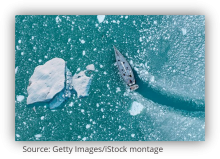
Does the glut of retractions mean science is in crisis? Hardly
All we are seeing is a necessary course correction to counter the infiltration of bad actors, say Leslie McIntosh, René Aquarius and Dorothy Bishop
January 31, 2025
Times Higher Education
Leslie McIntosh, René Aquarius Dorothy Bishop
For centuries, science has served as a bedrock of societal progress. Its principles of inquiry and evidence-based reasoning underpin everything from medical breakthroughs to technological innovation. Yet today, headlines paint a troubling picture of manipulated data and fabricated research findings, resulting in thousands of retractions. And that is just what has been uncovered so far.
As scientific “sleuths”, who focus on cleaning up the research literature, we are often accused of weakening public trust in science. But blame for mistrust lies squarely with the bad actors who have contaminated the scientific literature with what our colleague Smut Clyde has termed “parascience”: outputs that superficially resemble science, with its field-specific jargon, images and tables, but lack its core features, such as peer review or any actual underlying experiments.
The ripple effects are profound when we can no longer rely on the integrity of the scientific record. Medical advancements stall, infrastructure innovations falter and public health initiatives lose credibility. But is science itself in crisis? Hardly.
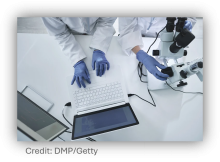
Thousands of highly cited scientists have at least one retraction
Database shows that researchers with retracted papers had higher self-citation rates and published more than those without retractions.
January 31, 2025
Nature
Jackson Ryan
More than 8,000 of the world’s most-cited scientists have at least one retraction, according to a database that links retractions to top-cited papers1.
An analysis of the database, published in PLOS Biology on 30 January, attempts to map the scale of retractions and understand how they manifest. “Not every retraction is a sign of misconduct,” says John Ioannidis, an epidemiologist at Stanford University in California, who led the study. “But it is important to have a bird’s eye view, across all scientific fields, [of] people who are most influential in science.”
Retracted papers had a higher number of self-citations than did non-retracted papers. And papers with higher co-authorship numbers were more likely to be retracted than were those with fewer co-authors.

Students and Research Mentors Can Navigate Career Conversations Together
Raquel Y. Salinas offers advice for graduate students and research mentors on how to have better conversations about career planning.
January 13, 2025
Inside Higher Ed
Raquel Y. Salinas
As a trained scientist, I had a fantastic research mentor. We talked about my research project, which experiments to prioritize and what the data meant, and we even sometimes discussed personal things like family and ties to home. When I joined his lab, I was open with my mentor about my interest in a teaching career and my desire to run a small research program working primarily with undergraduates. However, my career aspirations evolved over the course of my graduate training, and I found myself hesitant to share my new career goals. Though I recognized that my interactions with my mentor were quite positive and supportive, I still feared that sharing my non–academic scientist aspirations would somehow disappoint him, or worse, that I wouldn’t get the fullest support for my research training.
Now, as a career development professional who advises biomedical Ph.D. students, I see this same pattern often. Students express feeling comfortable discussing their research and academic endeavors with their research mentors but hesitate when it comes to discussing career plans outside academic research. They fear not receiving the same level of support and training, letting their mentor down, or being seen as less committed to their research and academic pursuits.
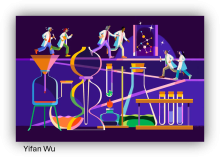
Scientists Don’t Want to Get Scooped—and It’s Hurting Science
Researchers are rewarded for being the first to discover and publish new findings. But the incentives can come at a cost.
January 1, 2025
KelloggInsight
John Pavlus
BASED ON THE RESEARCH OF Ryan Hill and Carolyn Stein
SUMMARY
When it comes to discoveries, being first matters. And new research underscores just how much. Ryan Hill of the Kellogg School and his colleague investigated what happens when scientists competed to discover the three-dimensional shapes of individual proteins. They found that scientists who were second to complete their projects were nearly 20 percent less likely to have their work published in a top journal, and their papers received 21 percent fewer citations from future work. Furthermore, they found that the more competitive a particular race was, the more the scientists rushed their work—resulting in lower-quality findings.
What motivates a scientist to make discoveries? An intrinsic desire to expand human knowledge, of course. But there’s often another force at work: the desire to be first. Even a luminary like Charles Darwin wasn’t exempt from it. Upon learning that his colleague had conceived a nearly identical theory of evolution, Darwin quickly published On the Origin of Species to avoid getting scooped. From the discovery of DNA a century later to the present-day race to master AI, this competitive pressure still shapes the way science gets done.
